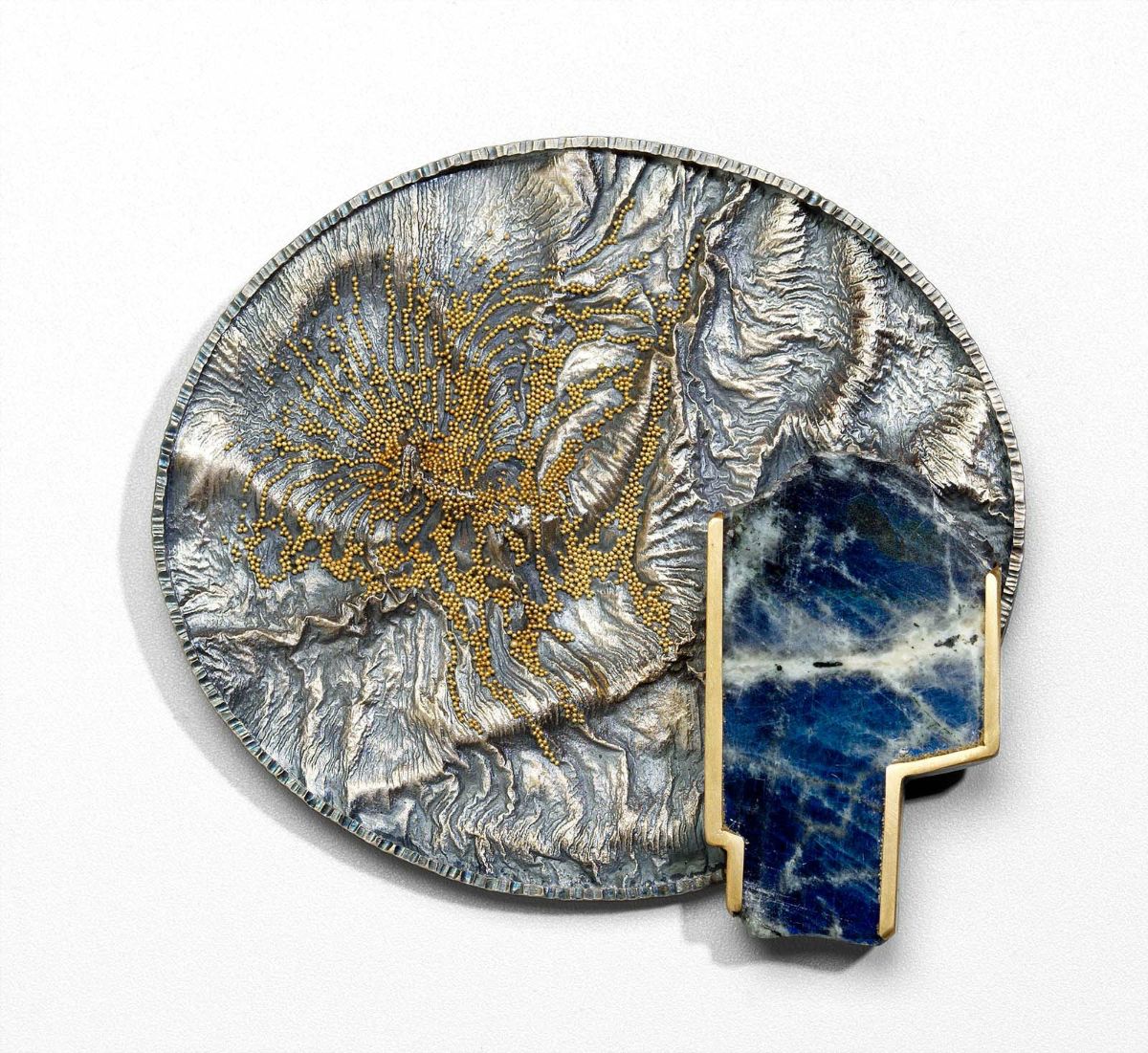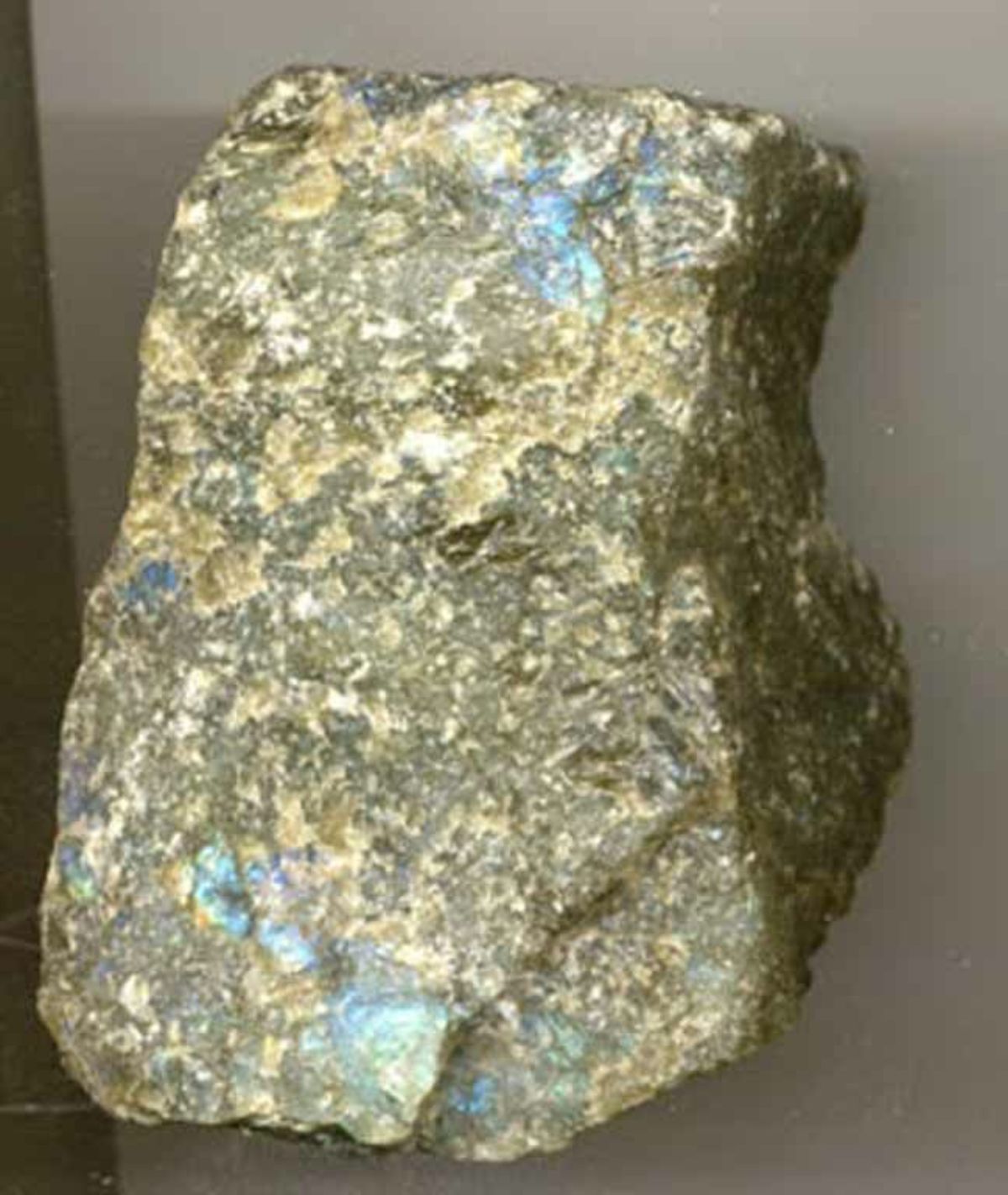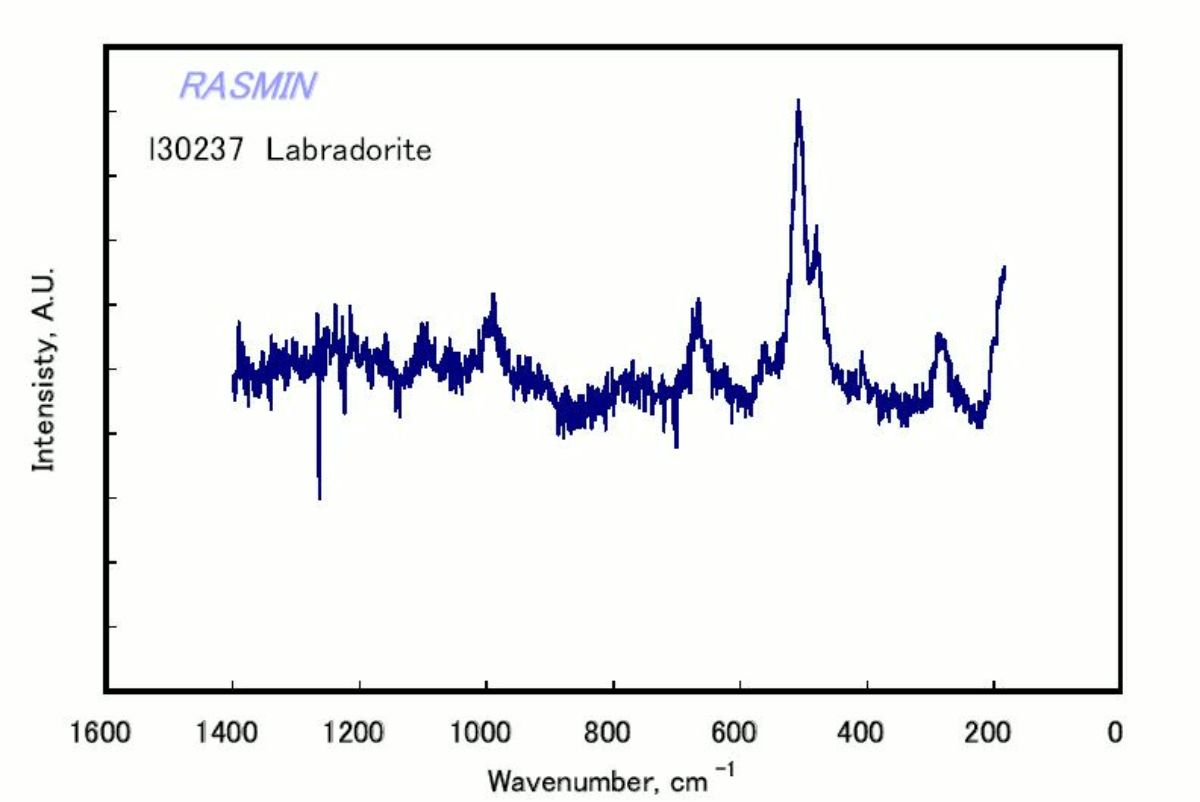Labradorite
Jump to navigation
Jump to search
Description
A hard, dense grayish-brown plagioclase feldspar quarried on Saint Paul Island, Labrador, Canada (Lent 1925). Labradorite also comes in a pale turquoise, bright orange, soft pink and strong blue colors that, when iridescent, are called sunstones. Labradorite has been used for interior decoration and gemstones.
Synonyms and Related Terms
labradorite (Port.); spectrolite (variety found in Finland); sunstone (when aventurescence is present)
Physical and Chemical Properties
- Triclinic prismatic crystals
- Cleavage = perfect in two directions (90 degrees)
- Fracture = uneven to conchoidal
- Luster = vitreous to pearly
- Streak = white
- Pleochroism = variable; sometimes due to crystal orientation
- Fluorescence = inert to weak in LW
- Inclusions = repeated twinning; black-needle-like inclusions; metallic-like platelets
| Mohs Hardness | 6.0-6.5 |
|---|---|
| Density | 2.71-2.74 g/ml |
| Refractive Index | 1.559-1.568 |
| Birefringence | 0.009 |
Comparisons
Properties of Common Gemstones
Resources and Citations
- Gem Identification Lab Manual, Gemological Institute of America, 2016.
- Frank A. Lent, Trade names and Descriptions of Marbles, Limestones, Sandstones, Granites and Other Building Stones Quarried in the United States Canada and other Countries., Stone Publishing Co, New York, 1925
- Wikipedia: Labradorite (Accessed Sept. 7, 2005 and Dec 2022)



